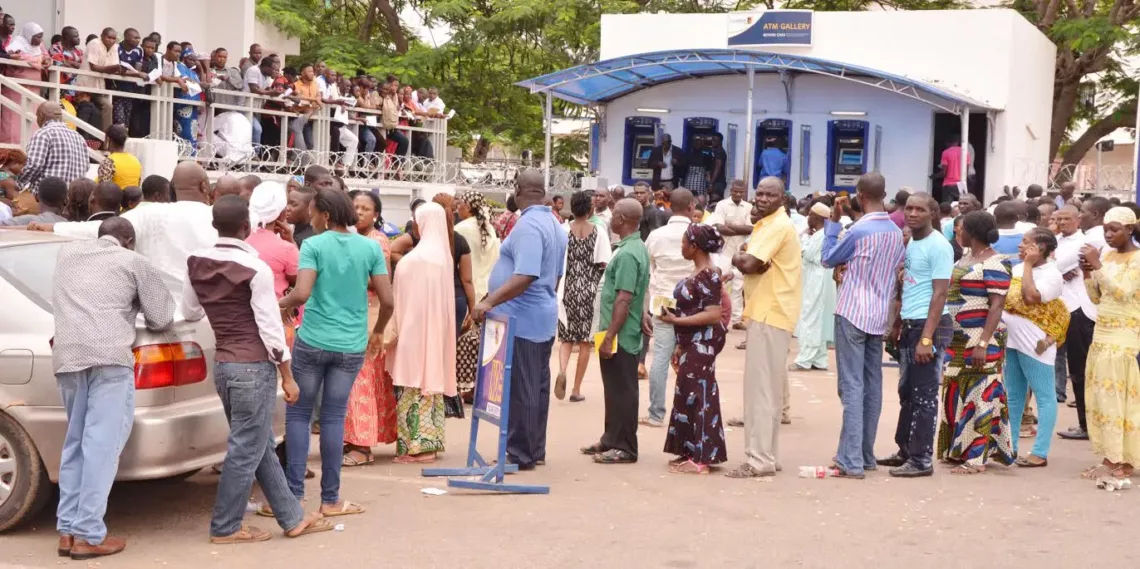In Nigeria, despite a substantial surge in electronic payment (e-payment) transactions, bank customers are grappling with a distressing trend of failed transactions. This phenomenon has become a significant concern within the country’s financial landscape, with over 60 percent of customer complaints revolving around these failed transactions, leading to widespread frustration and distress.
The first quarter of 2024 saw a remarkable spike in e-payment transactions in Nigeria, reaching a staggering N234 trillion. This figure represented an 89.3 per cent increase compared to the corresponding period in 2023, as reported by the Nigeria Inter-Bank Settlement System (NIBSS). Despite this surge, the joy of the digital revolution seems muted as reports of failed transactions continue to flood in.
Individual accounts of failed transactions paint a grim picture of the challenges faced by bank customers. From being debited for unsuccessful transactions to enduring prolonged waits for reversals, customers express frustration and anxiety. Instances of failed transactions range from Point of Sale (PoS) terminals to inter-bank transfers, leaving customers stranded without access to their funds.
Despite efforts to seek redress, customers encounter obstacles in their quest for resolution. Contacting customer care lines often proves futile, with long wait times and disconnections exacerbating the situation. Promises of resolution within a specified timeframe frequently go unfulfilled, adding to the customers’ sense of disillusionment and helplessness.
“These are monies meant for businesses, to feed, buy foodstuff or to family members in urgent need of taking care of health or other urgent needs. You go to buy fuel, you are stranded because PoS receipt says declined, so they refuse to sell to you, yet you don’t see your money,” one bank customer told NATIONAL CONOMY.
A food seller, Mama Buki, relating her experience, said her bank app failed recently when it was time to remit a loan she had obtained from microfinance bank. She said two weeks after the failed transaction, the cash she intended to transfer is yet to be reversed, which has caused her embarrassment and loss of creditworthiness, which she said will hurt her chances of getting more loans in the future.
Social media platforms, particularly Twitter, have become battlegrounds for disgruntled customers to air their grievances publicly. The collective outcry reveals the magnitude of the issue, with numerous individuals sharing similar tales of woe. Stories of significant sums lost in transit underscore the severity of the problem, as businesses and individuals alike suffer the consequences of unresolved transactions.
Recently, the House of Representatives urged the Central Bank of Nigeria (CBN) to instruct banks to enhance their systems to minimise instances of failed transactions and to promptly reverse failed transactions even without customer intervention. The legislative body called on the apex bank to ensure that banks return customers’ funds within the designated time frames, regardless of whether the customers have filed complaints.
The call comes following the adoption of a motion during a recent plenary session, initiated by Hon. Emmanuel Ukpong–Udo, regarding the necessity to prevent commercial banks from delaying fund reversals beyond the CBN-prescribed deadlines. In his presentation, Ukpong–Udo referenced data from the Nigeria Inter-Bank Settlement System Plc, indicating that over 135,500,000 Nigerians utilise banking services. He highlighted the CBN’s press release of June 8, 2020, which outlined revised timelines for transaction reversals and refund complaint resolutions.
Among the resolutions, Ukpong–Udo emphasised the CBN’s directives regarding the immediate reversal of failed “On-Us” ATM transactions and the expedited resolution of failed “Not-on-US” ATM transactions and disputed/failed POS or Web transactions. Expressing concern over the significant percentage of complaints related to failed transactions, particularly noting a reported 69 per cent in July 2023, Ukpong–Udo highlighted the adverse effects on Nigeria’s financial sector, including decreased business investments and lending activities.
The persistence of failed transactions poses significant implications for Nigeria’s economy and its citizens. Businesses struggle to maintain operations, individuals face financial strain, and trust in the banking system erodes. Urgent measures are needed to address the root causes of these failures, enhance customer support mechanisms, and restore confidence in electronic payment systems.
Commenting, a financial engineer, Charles Ehigiamusoe, stated that the surge in e-payment transactions in Nigeria should have heralded a new era of convenience and efficiency.
“However, the prevalence of failed transactions has cast a shadow over this progress, leaving many bank customers disillusioned and distressed. As the country contends with this pervasive issue, concerted efforts from financial institutions, regulatory bodies, and policymakers are essential to ensure the reliability and integrity of electronic payment systems. Failure to address these challenges risks undermining Nigeria’s economic potential and the well-being of its citizens, he said.
Also commenting, a financial economist at Ebonyi State University, Dr. Nelson Nkwo, noted that persistent failed transactions erode trust in the banking sector. He said when customers experience difficulties in accessing their funds or resolving transaction issues, they may lose confidence in the reliability and integrity of financial institutions. This loss of trust can deter individuals and businesses from engaging in electronic transactions, hindering the growth of digital banking and the broader financial ecosystem.
“Failed transactions disrupt business operations and cash flow. For businesses, delayed or incomplete transactions can result in inventory shortages, missed opportunities, and operational inefficiencies. In sectors where timely payments are critical, such as manufacturing, retail, and services, the inability to conduct seamless transactions can lead to significant disruptions and financial losses,” he added.
Another financial economist at Auchi Polytechnic, Zakari Mohammed, noted that failed transactions impede economic activity by inhibiting the flow of funds within the economy. Mohammed said when individuals and businesses encounter difficulties in transferring money, making payments, or accessing their funds, economic transactions are delayed or canceled.
“This slowdown in economic activity can dampen consumer spending, investment, and overall economic growth.
“Persistent issues with electronic transactions exacerbate financial exclusion, particularly among underserved and marginalised communities. When individuals experience difficulties with banking services, they may resort to cash transactions or informal financial channels, further marginalising them from the formal financial system. This perpetuates inequality and hampers efforts to promote financial inclusion and digital literacy,” he stated.
Mohammed stressed that failed transactions raise regulatory concerns regarding the robustness and oversight of electronic payment systems. He said regulatory authorities may need to intervene to ensure that financial institutions adhere to established standards and protocols for transaction processing, dispute resolution, and consumer protection.
“Failure to address systemic issues can undermine the stability and integrity of the financial system,” he added.
A stockbroker, Paul Igbrude, on his part, noted that financial institutions that fail to address customer grievances regarding failed transactions risk reputational damage. He said negative publicity on social media and other platforms can tarnish the image of banks and financial service providers, leading to customer attrition, loss of market share, and long-term damage to brand equity.
“Rebuilding trust and credibility may require significant investments in customer service, technology infrastructure, and regulatory compliance,” said Igbrude.





